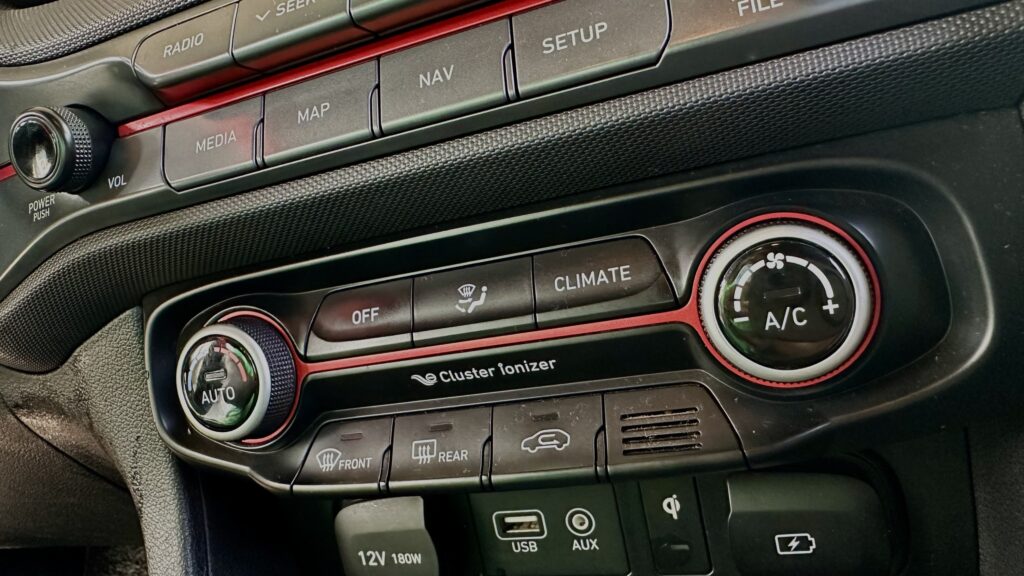Does Using Car AC Waste Fuel? Here Is The Truth
Using your car’s air conditioning can feel like a necessity on hot days—but at what cost? This comprehensive guide explores how AC impacts fuel consumption, breaking down the science, common myths, and real-world tips to stay cool without sacrificing efficiency. Whether you’re driving a gas-powered vehicle or an EV, find out how to optimize comfort and mileage.
Does Air Conditioning Increase Fuel Consumption? A Complete Guide for Drivers
Quick Summary
Air conditioning is one of the most appreciated comforts in modern vehicles, especially during scorching summer drives or humid rainy seasons. However, many drivers are left wondering if staying cool comes at the cost of burning more fuel. In this comprehensive guide, we explore the relationship between your vehicle’s air conditioning system and its fuel consumption. We break down how AC works, how it affects different types of vehicles, and how you can remain comfortable while minimizing its impact on fuel efficiency. As fuel prices fluctuate and drivers become increasingly mindful of efficiency, it’s essential to understand the trade-offs that comfort can impose on your vehicle’s performance. From daily commuting to long-distance travel, this article offers practical advice, debunks common myths, and explains the real impact of using your air conditioning — all supported by technical insights and real-world data.
Table of Contents
- Introduction to Vehicle Air Conditioning
- The Mechanics of AC and Fuel Usage
- Key Factors That Affect AC Fuel Consumption
- Rolling Down Windows vs. Turning on the AC
- Fuel Economy Studies: What the Data Says
- Smart Ways to Use AC Efficiently
- Debunking Common AC Myths
- Staying Cool and Saving Fuel: Final Thoughts
- Frequently Asked Questions (FAQs)
Introduction to Vehicle Air Conditioning
Air conditioning has transformed the driving experience, making journeys more pleasant regardless of the weather. But this comfort doesn’t come without consequences. Understanding its influence on your vehicle’s fuel economy begins with knowing how it functions within your car’s energy system. The air conditioning system, particularly the compressor, draws power directly from the engine—or the battery, in the case of electric vehicles. This additional load can lead to increased fuel usage. In this section, we provide an overview of how your AC system works, how it’s controlled, and why it can silently impact your fuel budget.The Mechanics of AC and Fuel Usage
Air conditioning systems operate by using a compressor to pressurize refrigerant and cool the air inside the cabin. In internal combustion vehicles, this compressor is powered by the engine, meaning it places a direct demand on your fuel supply. The more heavily the compressor is used—such as in hot weather or when set to maximum cooling—the more energy it consumes. This additional strain makes the engine work harder, resulting in greater fuel consumption. The effect is particularly noticeable at idle or at low speeds, where engine efficiency is already reduced. In electric and hybrid vehicles, the AC system draws power from the battery, which doesn’t affect fuel per se but does impact driving range. Regardless of the power source, AC use remains an energy drain.Key Factors That Affect AC Fuel Consumption
Numerous variables influence how significantly your AC system affects fuel consumption:- Vehicle Size & Engine Power: Smaller engines are more impacted by the AC load, while larger engines can handle it more efficiently.
- System Condition and Maintenance: A poorly maintained AC system—clogged filters, low refrigerant, or aging parts—forces the compressor to work harder.
- Climate and External Temperature: In hotter climates, the AC works overtime to cool down an overheated cabin.
- Driving Style & Environment: Stop-and-go traffic and short trips make your AC work harder than highway cruising, reducing fuel efficiency further.
Rolling Down Windows vs. Turning on the AC
One of the most debated fuel-saving strategies is whether to roll down your windows or use the air conditioner. The truth is, the answer depends largely on driving speed and external conditions. At low speeds, open windows don’t cause much aerodynamic drag, making them a more fuel-efficient option. However, at highway speeds, open windows disrupt airflow around the vehicle, creating drag that forces the engine to work harder and use more fuel. Meanwhile, using the AC consumes energy from the engine or battery but maintains aerodynamic efficiency. On highways, this can make AC the more efficient option. The best approach is to balance comfort with strategy: use ventilation or the recirculation mode during milder temperatures and reserve full AC for when it’s absolutely necessary.Fuel Economy Studies: What the Data Says
Independent organizations, including the Society of Automotive Engineers (SAE) and the Environmental Protection Agency (EPA), have conducted detailed studies on the impact of AC on fuel consumption. The findings include:- Air conditioning can reduce fuel efficiency by 5% to 20%, depending on conditions and vehicle type.
- At idle, running the AC can result in fuel loss of 0.5 to 1 liter per hour.
- Rolling down windows at highway speeds (55+ mph) can reduce fuel efficiency by up to 10% due to increased aerodynamic drag.
Smart Ways to Use AC Efficiently
Maintaining comfort doesn’t have to mean wasting fuel. Here are some smart, effective strategies for using your AC system more efficiently:- Use Recirculation Mode: This mode cools the cabin faster by reusing air that has already been cooled.
- Ventilate Before Driving: Let hot air escape by opening windows briefly before switching on the AC.
- Avoid Max Cold Settings: Lower fan and temperature settings place less strain on the compressor.
- Regular Maintenance: Clean air filters, ensure proper refrigerant levels, and have the system inspected annually.
- Shade Your Car: Use sunshades or park in shaded areas to reduce interior temperatures and the initial cooling load.
Debunking Common AC Myths
Let’s clear up some widespread misconceptions about air conditioning and fuel consumption:- “AC is always more efficient than open windows” — Not true. At low speeds, open windows are often more fuel-efficient.
- “AC only affects fuel at idle” — Incorrect. While more noticeable at idle, AC affects fuel economy at all speeds.
- “Electric vehicles aren’t affected by AC” — False. Though they don’t use fuel, AC drains battery power and shortens range.
- “Turning off the AC instantly saves fuel” — True. Even a brief AC shutdown can result in noticeable fuel savings, especially in small cars.

Hey, I just stumbled onto your site… are you always this good at catching attention, or did you make it just for me? Write to me on this website — https://rb.gy/ydlgvk?Cickith — my username is the same, I’ll be waiting.
If you’re looking to expand your audience and connect with like-minded individuals, consider promoting your site on our popular dating platform, https://rb.gy/ydlgvk?Cickith. With millions of active users worldwide, it’s the perfect place to find meaningful relationships or casual encounters.
If you’re looking to expand your audience and connect with like-minded individuals, consider promoting your site on our popular dating platform, — rb.gy/34p7i3?spasE. With millions of active users worldwide, it’s the perfect place to find meaningful relationships or casual encounters.
“Tempting tease longs for ecstasy.” Click Here \u003e rb.gy/34p7i3?spasE
“Barely legal nymph wants to sin.” Here — rb.gy/8rrwju?spasE
“Tempting tease longs for ecstasy.” Here — https://rb.gy/8rrwju?Cickith
“Tempting tease longs for ecstasy.” Here — rb.gy/8rrwju?spasE
“Wild temptress craves to flaunt her naked body.” Here — rb.gy/8rrwju?spasE
Naughty vixen eager to share her nude pics. Here — rb.gy/8rrwju?spasE
Insatiable minx desires to upload racy photos. Here — rb.gy/8rrwju?spasE